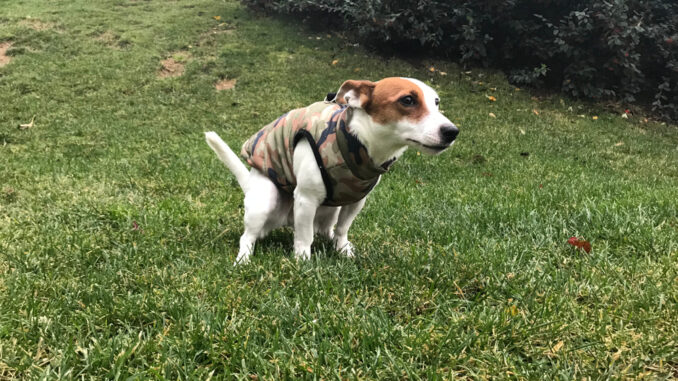
This article was updated on March 25th, 2024
Is your dog feeling a little clogged up after surgery? Having performed numerous surgeries on dogs, I can tell you that constipation following surgery is common.
While this is usually nothing to worry about, it’s important to be aware of when you need to contact your vet. In this article, I will explain why your dog might have constipation and how you can get your dog’s stools back to normal.
Why Does My Dog Have Constipation After Surgery?
After surgery, it is normal for dogs to suffer from constipation due to the effects of the anesthesia drugs and other changes in their body. As anesthesia disrupts the normal functioning of the body, it may cause dehydration or interfere with digestion.
General anesthesia depresses many organ systems in the body including the gastrointestinal system, leading to the slower passage of food through it. This makes it difficult for your dog’s digestive system to work properly.
Additionally, an empty stomach (due to fasting before surgery) can affect their bowel movement. Reduced exercise and mobility following a procedure also slows the intestines down.
Dogs often awake from anesthesia and surgery dehydrated. A lack of fluid results in the stools within their bowels drying up, further predisposing them to constipation. Finally, many pain medications can also contribute to constipation.
Is it Normal for a Dog To Be Constipated After Surgery?
If your pup has recently undergone surgery and is now struggling to pass a first bowel movement, you’re probably feeling a range of emotions. It’s completely normal to question if this constipation is the result of a complication or even worse, something far more serious.
Fortunately, it’s likely just a normal reaction post-surgery for the reasons mentioned above. If your dog is otherwise well in itself then it’s often not anything to worry about.
It’s important to carefully monitor your dog’s symptoms, evaluate the situation and talk to your vet before taking any action.
In general, a post-op dog should be back on “form” within three or four days.
If constipation persists for more than a week, it’s time to contact your vet and discuss further treatment. The pain medications that they’re on may also be contributing to irregular bowel movements, so your vet might advise stopping this. Many owners worry that there may be an underlying cause of constipation, but usually, this will resolve itself without medical intervention.
Home Remedies For Irregular Bowel Movement In Dogs
Many pet owners take for granted the importance of regular bowel movements in keeping their pup healthy and happy, but constipation can be a very real problem. Fortunately, there are steps you can take at home to help your pooch avoid constipation and stay discomfort-free.
1. Feed your dog a high-fiber diet
A high-fiber diet that encourages digestion can help your dog move naturally; canned pumpkin or specialized gastrointestinal canned dog food are good ideas.
2. Make sure your dog is hydrated
Adequate hydration keeps moisture in the bowels so make sure your dog drinks plenty of water. Simply make sure that your dog has easy access to fresh water anytime during the day.
3. Consider gentle exercises
Regular exercise is also key in helping maintain stool consistency – of course take into account whether this is appropriate for the procedure your dog has had done but short lead walks are usually fine.
If constipation persists despite these home remedies, it’s best to consult with your vet as they may prescribe further treatment or check for underlying conditions.
Make sure you read our veterinarian recommendations for simple home remedies to help a constipated dog.
Reasons You Should Seek Veterinary Attention Immediately
If your dog’s constipation appears to be accompanied by symptoms such as lethargy, vomiting, diarrhoea or fever it’s important to contact your vet urgently as this could indicate a more severe underlying issue.
Additionally, if constipation persists for longer than a week despite home remedies and medications prescribed by your vet then further investigation may be needed.
No matter how minor the issue appears to be, it’s always best to err on the side of caution when dealing with a dog post-operatively – If you’re ever in doubt over your dog’s condition or behavior, please speak to your vet.
Your dog could develop more significant problems such as bloating or even intestinal blockage. So, don’t let minor issues become much bigger ones; act fast and contact your vet for timely and effective treatment. It’s rare, but in some cases, impacted stools can be life-threatening and require urgent medical attention.
Make sure you read our veterinarian recommendations for simple home remedies to help a constipated dog.
Common issues after surgery:
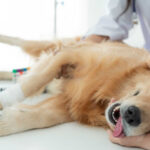
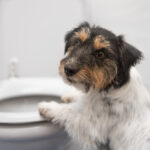


Disclaimer: This website's content is not a substitute for veterinary care. Always consult with your veterinarian for healthcare decisions. Read More.




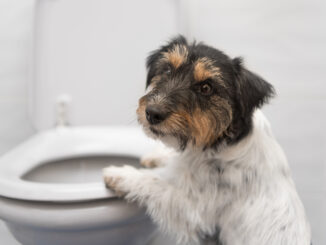
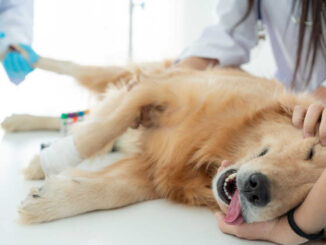
Be the first to comment